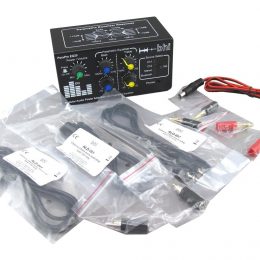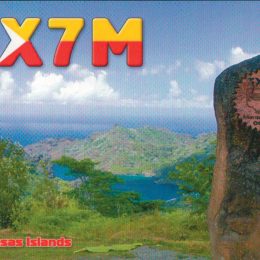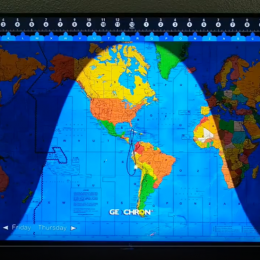HAM Radio 101 / Products & Product Reviews
Displayed at Dayton Hamvention 2019, bhi’s LLC-1 Line Level Converter changes a speaker output to a line level signal, adding even greater flexibility to bhi’s ParaPro EQ20 Parametric Equalizer. Designed […]
HAM Radio 101 / Products & Product Reviews
From the innovators at WiMo comes a remarkably powerful and versatile APRS module that can slide into your pocket or easily install out-of-sight in your vehicle, yet is ideal for […]
Photo Galleries
Editor’s Note: Every month, DX Engineering features QSL cards from our team members’ personal collections. To highlight upcoming DXpeditions, we’ll be displaying a few of our favorite cards along with […]
Products & Product Reviews
Throw down a challenge to an Amateur Radio experimenter and you can practically hear the gears of inspiration grinding. At DX Engineering, it’s a familiar sound. In the longstanding tradition […]
Products & Product Reviews
This week in our Word of the Day column, we’ll be focusing on what’s new in the 2019 DX Engineering Fall/Winter Catalog. Turn to Page 4, Featured New Products, and […]
Products & Product Reviews
As a Ham Radio enthusiast, the holiday season is a great time to show your fellow operators just how much you appreciate them. It’s also an opportunity to find the […]
HAM Radio 101
If you remember the thrill of leafing through a holiday catalog as a kid—circling all the pipe-dream stuff you wanted but knew you would never acquire—you’re hardly alone. Years removed […]
Events / HAM Radio 101
The Antique Wireless Association (AWA) is committed to making sure the bygone days of radio are not forgotten. Per its website, the AWA’s vision is “To preserve and share the […]
Technical Articles
Contests come in a lot of shapes and sizes, from domestic sprints lasting a few hours to weekend-long, 48-hour worldwide DX contests. The difference can be as great as between […]
Events / HAM Radio 101
November is the season to give thanks for some of the year’s best Ham Radio contesting opportunities. Here are a few highlights: ARRL November Sweepstakes, CW (November 2-4) 2100 UTC […]








